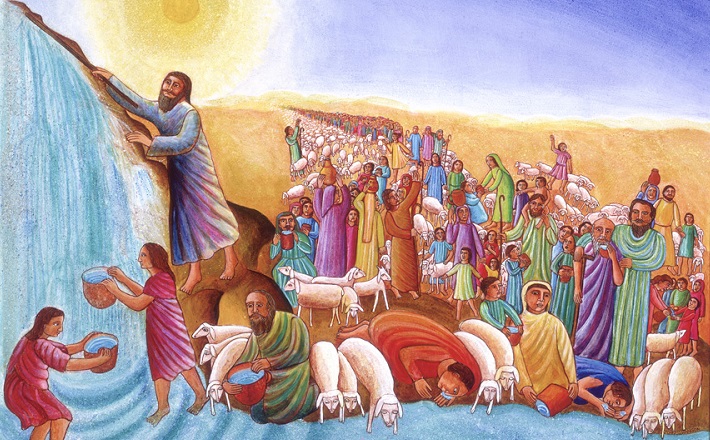Commentary on Psalm 27:1-6
[This is Week 4 of a 6-week preaching series on Psalms.]
[This is Week 4 of a 6-week preaching series on Psalms.]
[This is Week 4 of a 6-week preaching series on Psalms.]
Week 4 (June 21, 2015)
Preaching text: Psalm 27; accompanying text: Matthew 6:25-34
Disorientation, Part 2 or Reorientation, Part 1: My Light and My Salvation
Very similar to the prayers for help, the psalms of trust are prayed from a situation of severe crisis. What Psalm 27 calls the time when “evildoers assail me” (27:2), or Psalm 46 calls the times when “waters roar and foam” and the “mountains tremble” (46:3). These psalms are very, very clear that life in God’s creation isn’t safe. There are very clear and present dangers.
The major difference between the prayers for help and the psalms of trust is the dominant mood. Both types of psalm depend on God. Both types of psalm at least imply a request for help. And both types of psalm include expressions of trust. But whereas the prayers for help strike the dominant note of fear and desperation, the psalms of trust hit the chord of trust.
For this reason, the psalms of trust have one foot in the “disorientation” camp (because they are spoken in the midst of crisis) and one foot in the “reorientation” camp (because they strike the note of trust rather than terror). The psalms of trust are both “disorientation, part 2” and “reorientation, part 1.”
An interpreter might imagine the prayers for help as the prayers of those who are younger, who are going through their first times of crisis. While the psalms of trust are the words of those who aren’t being thrown from a bull for the first time. This crisis isn’t these psalmists’ first rodeo. They’ve been thrown before, had the floor fall out from beneath them before. And even though the crisis is horrible, they are able to trust on the basis of past experience that a brighter tomorrow will soon dawn.
A personal note: Psalm 27 is a favorite psalm of my own. The first verse alone — “The Lord is my light and my salvation, whom shall I fear?” — has helped me get through many a long night of the soul. When I was a teenager I developed bone cancer, which took both of my legs. As I came through the dark days of cancer, I grew in my trust of God. I never got my legs back, of course. But I learned that God, my light and salvation, is with me always.
When preaching the psalms of trust, be sure to emphasize that these psalms are perfectly clear on how dangerous and deadly life can be. But also that they are words of trust from those who been there before, who’ve had the bottom drop out, but who “cried to the Lord” and were saved.
Hymn Suggestions:
- “A Mighty Fortress is Our God”
- “Through the Night of Doubt and Sorrow”
- “Day by Day (Your Mercies Lord Attend Me)”


June 21, 2015